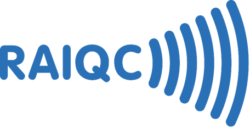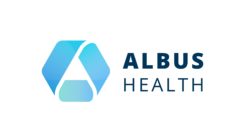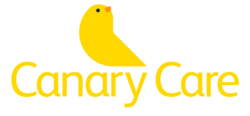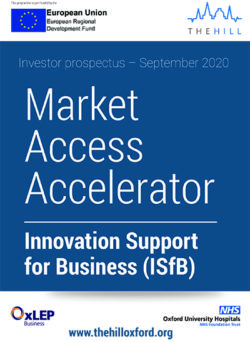In the closing weeks of TheHill’s NHS Market Access Accelerator, we arranged an Investor Day for selected Accelerator participants. Over half of the 18 companies indicated an interest in raising investment, and after a rigorous selection and training process, seven were invited to make a final pitch at our Investor Day. TheHill welcomed a range of institutional and angel investors to the session, hosted on Zoom.
The opening session for investment opportunities of up to £500,000, showcased three companies, the first two of whom use different approaches to address a key problem in healthcare: the increasing shortage of healthcare staff capable of interpreting an expanding pool of medical images.
 Dr Sarim Athar, a radiologist at Oxford University Hospitals, opened proceedings with a pitch for his spin-out, RAIQC. Started by a team with a combined radiology experience of over 50 years, RAIQC’s web-based clinical simulation platform hosts more than 50,000 X-Ray, CT and MRI scans and has been shown to improve the image interpretation skills of healthcare professionals. RAIQC is seeking £250,000 in investment to expand its operations in the UK and overseas.
Dr Sarim Athar, a radiologist at Oxford University Hospitals, opened proceedings with a pitch for his spin-out, RAIQC. Started by a team with a combined radiology experience of over 50 years, RAIQC’s web-based clinical simulation platform hosts more than 50,000 X-Ray, CT and MRI scans and has been shown to improve the image interpretation skills of healthcare professionals. RAIQC is seeking £250,000 in investment to expand its operations in the UK and overseas.
 Dev Bharti presented Converz, a powerful AI to assist healthcare professionals with the interpretation of radiology images. Converz, unlike other attempts at this problem, uses the modern and innovative Federated-Artificial Intelligence paradigm to train the AI on data in situ, rather than expecting the data to travel to the AI. This provides a trustworthy, scalable model with enhanced patient privacy. Dev said of his experience of the Investor Day “[TheHill] have played the key role of “Devil’s advocate” that helps question ourselves to better the proposition. A lot of events were organised (tax, legal, selling to NHS etc) and a number of people across various mentor roles helped prepare and refine the pitch. A genuine thank you to everyone at TheHill”.
Dev Bharti presented Converz, a powerful AI to assist healthcare professionals with the interpretation of radiology images. Converz, unlike other attempts at this problem, uses the modern and innovative Federated-Artificial Intelligence paradigm to train the AI on data in situ, rather than expecting the data to travel to the AI. This provides a trustworthy, scalable model with enhanced patient privacy. Dev said of his experience of the Investor Day “[TheHill] have played the key role of “Devil’s advocate” that helps question ourselves to better the proposition. A lot of events were organised (tax, legal, selling to NHS etc) and a number of people across various mentor roles helped prepare and refine the pitch. A genuine thank you to everyone at TheHill”.
 The final pitch in the first section was Medwise, pitched by Dr Keith Tsui. Medwise helps clinicians find answers to their questions instantly so they can provide best-practice care to patients. Using the latest transformer-based neural networks, the Medwise.ai platform retrieves paragraphs from biomedical journal articles and guidelines to provide instant answers to clinical queries. The company has already received investment from Novartis and Wayra and is seeking £500,000 in this investment round.
The final pitch in the first section was Medwise, pitched by Dr Keith Tsui. Medwise helps clinicians find answers to their questions instantly so they can provide best-practice care to patients. Using the latest transformer-based neural networks, the Medwise.ai platform retrieves paragraphs from biomedical journal articles and guidelines to provide instant answers to clinical queries. The company has already received investment from Novartis and Wayra and is seeking £500,000 in this investment round.
 The £1 million+ ticket size section started with Oxford University spin-out Albus Health, pitched by Mikesh Udani. Albus Health recently secured one of the first AI in Health and Care awards and has to-date received £2.9mn in funding through grants and convertible loans, including three InnovateUK grants. The product is a small non-contact tabletop device that automatically monitors a range of symptoms and metrics at home, without the patient having to do or wear anything. This CE marked product helps pharmaceutical companies collect objective evidence in clinical studies, helping them extend claims on their drugs and improve their clinical trial efficiency. It has proved particularly effective in the respiratory space and Albus Health is contracted to supply the device and analytics package for a clinical study by a large global pharmaceutical company in this area. Albus Health is seeking around £1million investment for their seed round starting in 2 months.
The £1 million+ ticket size section started with Oxford University spin-out Albus Health, pitched by Mikesh Udani. Albus Health recently secured one of the first AI in Health and Care awards and has to-date received £2.9mn in funding through grants and convertible loans, including three InnovateUK grants. The product is a small non-contact tabletop device that automatically monitors a range of symptoms and metrics at home, without the patient having to do or wear anything. This CE marked product helps pharmaceutical companies collect objective evidence in clinical studies, helping them extend claims on their drugs and improve their clinical trial efficiency. It has proved particularly effective in the respiratory space and Albus Health is contracted to supply the device and analytics package for a clinical study by a large global pharmaceutical company in this area. Albus Health is seeking around £1million investment for their seed round starting in 2 months.
 Ifty Ahmed pitched Healthbit, a unified health tracking and research platform. For patients, it empowers individuals to manage their health. For pharmaceutical companies and researchers it drives research efficiencies and unlocks value from real-world data. Following £2M investment to date, there is a market ready suite of complementary products driven by a single technology platform. Healthbit is seeking a £1.2 million investment
Ifty Ahmed pitched Healthbit, a unified health tracking and research platform. For patients, it empowers individuals to manage their health. For pharmaceutical companies and researchers it drives research efficiencies and unlocks value from real-world data. Following £2M investment to date, there is a market ready suite of complementary products driven by a single technology platform. Healthbit is seeking a £1.2 million investment
 Canary Care, pitched by Dr Stuart Butterfield, is a well-established company, with seven years of operation under its belt. Canary Care is a passive activity monitoring system that uses sensors placed around a residence to gather information about daily routines. The system detects movement, door activity, temperature and light levels and can also keep track of visitors to the property. There are no cameras or microphones, and no internet connection – or even a landline – is required. Canary Care is used by around 100 UK local authorities, as well as the NHS, private sector care and housing providers, and individual families, and is seeking £1.25million in investment to rapidly expand operations based on a proven business model.
Canary Care, pitched by Dr Stuart Butterfield, is a well-established company, with seven years of operation under its belt. Canary Care is a passive activity monitoring system that uses sensors placed around a residence to gather information about daily routines. The system detects movement, door activity, temperature and light levels and can also keep track of visitors to the property. There are no cameras or microphones, and no internet connection – or even a landline – is required. Canary Care is used by around 100 UK local authorities, as well as the NHS, private sector care and housing providers, and individual families, and is seeking £1.25million in investment to rapidly expand operations based on a proven business model.
 The round finished with CardMedic, presented by Dr. Rachael Grimaldi, pitching for £1.8 million. CardMedic is a website and app designed to improve communication between frontline healthcare staff and patients no matter the barrier; whether it’s visual, hearing or cognitive impairment, foreign language or PPE (Personal Protective Equipment). From concept to launch in 72 hours, CardMedic has had over 42,000 users in 120 countries and 11,500 app downloads since April 1st. Rachael said of the experience “We were excited to be pitching to investors just 5 months after starting CardMedic. The support from TheHill team in developing our pitch and preparing for the day was fantastic. Though face-to-face pitching is preferable, under current circumstances pitching over Zoom was well managed and still generated space for discussion and interaction. We’ve already received interest from two investors from the session.”
The round finished with CardMedic, presented by Dr. Rachael Grimaldi, pitching for £1.8 million. CardMedic is a website and app designed to improve communication between frontline healthcare staff and patients no matter the barrier; whether it’s visual, hearing or cognitive impairment, foreign language or PPE (Personal Protective Equipment). From concept to launch in 72 hours, CardMedic has had over 42,000 users in 120 countries and 11,500 app downloads since April 1st. Rachael said of the experience “We were excited to be pitching to investors just 5 months after starting CardMedic. The support from TheHill team in developing our pitch and preparing for the day was fantastic. Though face-to-face pitching is preferable, under current circumstances pitching over Zoom was well managed and still generated space for discussion and interaction. We’ve already received interest from two investors from the session.”
 We had a good turnout of institutional and angel investors, some of whom are now in contact with the start-ups to explore potential opportunities. If you’re interested in investing please read our investor prospectus and contact the ISfB Programme Manager Abdul Gufar to get in contact with any of the startups.
We had a good turnout of institutional and angel investors, some of whom are now in contact with the start-ups to explore potential opportunities. If you’re interested in investing please read our investor prospectus and contact the ISfB Programme Manager Abdul Gufar to get in contact with any of the startups.
This fantastic group of start-ups are just some of the digital health businesses and projects supported by TheHill digital innovation catalyst. Visit TheHill’s website to find out more about our range of events and activities for digital health innovators from all backgrounds.

